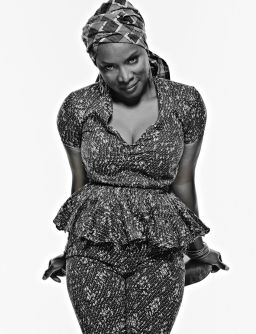Editor’s Note: Angelique Kidjo is a Grammy Award-winning singer-songwriter and an activist. The opinions expressed in this commentary are her own. This is part of “The first time I realized I was black” series.
Story highlights
Kidjo: I learned when I was 9 that skin color was used to divide people
Now I use my microphone to help build bonds with people, she writes
“The saddest thing in life is wasted talent.”
You might remember this line in Robert De Niro’s movie, “A Bronx Tale.” But with what I have experienced in my life, I would rephrase it to say: “The saddest thing in life is wasted human connection due to fear.”
My whole life has been a long journey through countries, cultures and languages. I have traveled the whole world with my music and I have discovered the many things we have in common. With the help of my microphone – which I called my weapon of mass loving – I have been able to forge bonds with incredible human beings of all origins. Am I a hopeless and na?ve idealist? I don’t think so!

I was lucky to be born into a big family with 10 children and raised by educated and open-minded parents in Benin, West Africa. Without fear, they opened the doors of their home to everyone: the French expatriate, the Chinese table tennis coach or the English engineer. There was no lock on that door.
My first realization that color could matter happened when I was 9 years old and I first saw the cover of Jimi Hendrix’s album “Bold as Love.” When I asked my brother where Hendrix was from, he told me that he was African-American, a slave descendant. This was the first time I learned about slavery. It was a concept that I could not fully grasp at that young age, but it troubled me.
Later, at age 15, I watched a South African woman on Nigerian television talking to journalists about the political system of apartheid and the jailing of her husband, Nelson Mandela. As I watched Winnie Mandela, my whole world collapsed.
My parents had taught me that everyone was equal, that you had to respect everyone and that skin color didn’t matter. Now I could see that your skin color, not who you were, could define you and even decide whom you could marry. (When, many years later, in 1985, I first met my French husband, interracial marriages were still illegal in South Africa.)
Get our free weekly newsletter
That day, I locked myself in my bedroom and wrote a very violent song filled with hate towards the South African regime. I sang it to my father. He gently looked at me and told me: “Your music can’t be preaching hate. Music is supposed to create a bond between people. This is what our traditional songs are for. You have to rewrite your song and create a powerful inspiration for change.”
I went back to my room and reworked the song “Azan Nan Kpé,” an anthem for peace. My new chorus said: “A day will come when there will be no more oppressed and no more oppressors.”
I’m still waiting for that day, of course, but the message of my father endured within me since then. It has inspired my songs and made me travel the world in quest of that dream of universal human connection.

